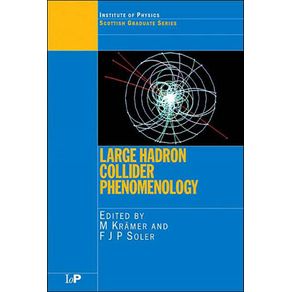With the Large Hadron Collider (LHC) under construction and due to come online in 2007, it is appropriate to engage in a focused review on LHC phenomenology. At a time when most of the experimental effort is centered on detector construction and software development, it is vitally important to direct the experimental community and, in particular, new researchers on the physics phenomena expected from the LHC. Large Hadron Collider Phenomenology covers the capabilities of LHC, from searches for the Higgs boson and physics beyond the standard model to detailed studies of quantum chromodynamics, the B-physics sectors, and the properties of hadronic matter at high energy density as realized in heavy-ion collisions. Written by experienced researchers and experimentalists, this reference examines the basic properties and potentials of the machine, detectors, and software required for physics analyses. The book starts with a basic introduction to the standard model and its applications to the phenomena observed at high energy collisions. Later chapters describe the key technological challenges facing the construction of the LHC machine, the operating detectors of the LHC, and the vast computing grid needed to analyze the data. In the final sections, the contributors discuss the quark-gluon plasma (QGP), explore questions and predictions for the LHC program, and examine the physics opportunities of the LHC using information from the forward region. By surveying the difficult challenges of the LHC development while also assessing the novel processes that the LHC will perform, Large Hadron Collider Phenomenology aids less seasoned physicists as well as existing researchers in discovering thenumerous possibilities of the LHC.



